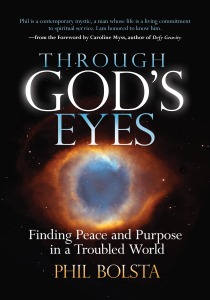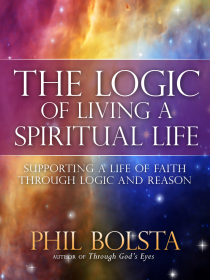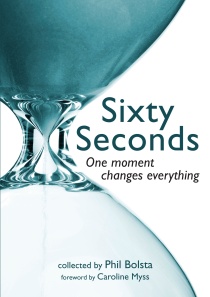I was intrigued by Matthieu Ricard‘s Buddhist-flavored thoughts on the art of happiness. Plus, it’s the first time I’ve seen a Buddhist monk quote Ayn Rand! Here is the Q&A article by Justine van der Leun of AOL Health.
Buddhist monk Matthieu Ricard claims you can practice your way to happiness, and he should know: After MRI scans showed that he experienced extreme levels of positive emotions and few negative ones, he became known as “the happiest man in the world.” Trained as a cell biologist in France, Ricard moved to the Himalayas in 1972 to study Buddhism. He’s now a translator, a photographer and the Dalai Lama‘s French interpreter. His books—the proceeds of which go to 41 humanitarian projects in the remote Himalayas—include The Monk and the Philosopher (a dialogue with his father, a famed philosopher), Happiness: A Guide to Developing Life’s Most Important Skill, and, most recently, Why Meditate? AOL Health spoke with Ricard about the cultivation of happiness, the benefits of altruism and how 30 silent minutes a day can change your life.
Do you think you’re the happiest man in the world?
It’s better than the unhappiest person in the world. It was a cover line on a Buddhist independent journal. Of course it’s cute, but it doesn’t rest on scientific evidence. I took part in some ongoing studies on compassion. It’s a jump to say my results mean that.
What is happiness?
Happiness is a way of being rather than an endless search for experiences. Pleasure is fine but depends on things that are subject to change: people, places, things. Something tastes good; fire warms you when you’re cold. But then this experience turns neutral or averse: Even the most beautiful music is unpleasant after 24 straight hours. But happiness is a more durable state. It’s a cluster of basic human qualities that nurture a state of fulfillment, flourishing, of appreciating your life. It’s inner freedom, inner strength, inner peace. These are the resources to deal with the struggles of life. The more you experience happiness, the deeper and more stable it becomes.
You link meditation with happiness. Why?
Meditation is not an exotic eastern practice but is actually mind training. We all have a mind and can work with it.
So the basis of happiness is mind training?
In the sense that mind training means harnessing the potential we have for less vulnerability to provocation from outside. Meditation helps you cultivate a better emotional balance and inner freedom so you are not a slave of impulses like anger and craving.
And you do this by sitting for 30 minutes a day?
There are different types of meditation, and I tried to gather all these exercises into a small manual for a Western audience [“Why Meditation?”]. But in clinical trials that study the effects of meditation in the West, 30 minutes a day has been the foundation. We always see that after three months, meditation has had a significant effect in reducing stress and the tendency toward depression. It reinforces the immune system and positive emotions. It’s been studied for 10 years in the West. Sitting for that precious 30 minutes modifies the quality of the other 23 hours and 30 minutes.
So happiness is a skill?
Pleasure cannot be cultivated — only renewed. But you can cultivate inner peace, strength, freedom — the qualities that create genuine happiness. We start with different baselines: For instance, everyone will not become a champion of tennis, but within a few months or a few years of training, even a beginner can become a decent player and enjoy it.
Do negative emotions, like anger, have a purpose?
If you witness someone beating a child or an injustice, anger can motivate you to do something. But all the studies have shown that people who systematically vent their anger just reinforce their tendency to be angry. You don’t just want to suppress it or you’ll be like a time bomb. Instead, you look at your anger and let it vanish. When you cease to fuel a fire, it slowly dies out.
You’re not talking about being a pushover.
A mother who gets angry and aggressive is taken over by nerves. A mother can be loving but still firm, straight and a bit severe. You can extend that attitude of the mother to others.
What about sadness?
Sadness is not incompatible with happiness because happiness is not just a pleasant sensation. Sadness can help you feel compassion. Even when you are sad, you can continue to do wonderful things.
What is the relationship between happiness and ambition?
Ambition for wealth, fame or power puts our hopes and fears outside ourselves. It’s individualistic, self-centered and egocentric. But ambition in terms of becoming a better person, preserving the environment or finding inner peace can motivate you.
The search for material goods seems to become a cycle for people — the emptier they feel, the more money and stuff they seek to fill the void.
Yes, they feel empty so they go for a shopping spree or get a younger wife. You get addicted to selfishness.
Is it a lost cause with some people?
Sometimes people say, “I can’t sleep.” I say, “We have a clinic next door — go help, and I bet after two weeks, you will be able to sleep.” They come back with a more humane perspective and find satisfaction and fulfillment.
So to snap out of it, help other people?
I’ve seen many successful people who feel empty. They start helping underprivileged kids and find such meaning in life. Everything is different.
People assume altruism may make them unhappy.
Your primary motive is to help others, but it’s also the best way to be happy yourself. Ayn Rand said that you should be selfish and should not sacrifice any part of yourself. She didn’t get the point. Altruism is the best way to make yourself happy. If you look at living beings and see how your actions can contribute to a more compassionate society, you flourish.
ABOUT PHIL BOLSTA

If you feel more stressed than blessed . . . if you have more confusion than clarity about how to live your beliefs . . . if you long to live a richer, happier, more meaningful life . . . you will find a wealth of insight and guidance in Through God’s Eyes: Finding Peace and Purpose in a Troubled World.
Through God’s Eyes is a road map for living a more peaceful, beautiful life. It’s the only book that explains how dozens of spiritual principles interact, how to weave them together into a cohesive worldview, and how to practically apply this spiritual wisdom to daily life.
Readers everywhere are discovering that when you challenge yourself to look through God’s eyes, the world around you changes, and so do you.
Who will benefit from reading Through God’s Eyes?
Anyone who is on a spiritual path, or wants to be.
Anyone who loves life, or wants to learn how to.
Anyone who is happy, or wants to be happier.
Click here to order your copy of Through God’s Eyes from GodsEyesAmazon.com.
For an inscribed copy, click here to e-mail Phil for information.
Click here to visit the Through God’s Eyes website.
Click on the link below to download a FREE 28-page chapter!
SEE EVERY MOMENT AS A GIFT
Click here to read endorsements from authors and thought leaders.
Click here to read unsolicited testimonials from readers.
Click here to ask Phil to add you to his e-mail list for updates on his blog and books.
Here is a two-minute video introduction to Through God’s Eyes.

Like to learn more about Through God’s Eyes? Here is a free 44-page PDF sampler from the book that includes:
• an overview of the book
• the complete table of contents
• the Foreword by Caroline Myss
• my Introduction
• chapter excerpts
• a sample end-of-chapter story
• endorsements from authors and thought leaders
Just click on the link below to download your free PDF sampler!
THROUGH GOD’S EYES PDF SAMPLER

Schedule a Mastery Mentoring phone session with Phil to learn how to apply principles of spiritual living more effortlessly and effectively. Priced affordably! Click here to e-mail Phil for details.

Phil’s eBook, The Logic of Living a Spiritual Life: Supporting a Life of Faith Through Logic and Reason, is now available for 99 cents.
Order it at GodIsLogical.com.
In this eBook, you’ll find answers to questions like:
• What is the cornerstone of a spiritual life, and why?
• What is the secret to liberating yourself from other people’s judgments and expectations?
• How do you reconcile the “free will vs. Divine Will” conundrum?
• Why is there an exception to “Everything happens for a reason”?
Those who worship logic instead of God are only half right. Not only is it logical to believe in God and to live a faith-based life, the existence of a loving, benevolent God that governs all creation is perhaps the only systematic worldview that explains every aspect of life.
 Phil is also the author of Sixty Seconds: One Moment Changes Everything, a collection of 45 inspiring, life-changing stories from prominent authors and thought leaders he interviewed. The roster of storytellers includes Wayne Dyer, Deepak Chopra, Neale Donald Walsch, Caroline Myss, Larry Dossey, Rachel Naomi Remen, Bernie Siegel, Dean Ornish, and Christiane Northrup. Sixty Seconds has been translated into four languages: Italian, German, Spanish, and Portuguese. Reading this book is like spending a few minutes face to face with each of the contributors and listening to their personal stories.
Phil is also the author of Sixty Seconds: One Moment Changes Everything, a collection of 45 inspiring, life-changing stories from prominent authors and thought leaders he interviewed. The roster of storytellers includes Wayne Dyer, Deepak Chopra, Neale Donald Walsch, Caroline Myss, Larry Dossey, Rachel Naomi Remen, Bernie Siegel, Dean Ornish, and Christiane Northrup. Sixty Seconds has been translated into four languages: Italian, German, Spanish, and Portuguese. Reading this book is like spending a few minutes face to face with each of the contributors and listening to their personal stories.
Click here to order Sixty Seconds.
Learn more by visiting the official Sixty Seconds website.
Click here to read unsolicited testimonials from readers.
Here is a three-minute video introduction to Sixty Seconds.
Tags: Buddhism, happiness, Matthieu Ricard

November 16, 2010 at 4:18 PM
Very interesting Man!! Thanks for posting, Phil!!
November 16, 2010 at 4:20 PM
You bet, Theo!
November 17, 2010 at 8:03 AM
Thanks Phil for sharing this.
I have read Matthieu Ricard’s ‘Happiness’ and enjoyed it. He cannot fail to inspire anyone who comes to know him as a person through his work.
I have a great admiration for him but I had difficulty understanding his views on Ayn Rand.
I particularly failed to be convinced of an example he gives in his book about a person who decides to die for another person…in an attempt to prove that there can be instances where happiness is not the sole motivator of our actions.
I still feel that the person in this story died only because he believed that this decision would in someway uphold his happiness. The belief of being rewarded in afterlife for one’s good actions, to be remembered for our values, to do things in congruence with our highest values are noble things that make us believe that these will bring us happiness (sometimes despite possible physical discontinuance in this world of form) but such actions are still executed for one’s own happiness.
If you are not inspired to serve others from within and still do it because of a social, cultural or religious expectation or any other external influence it may actually make you unhappy. Most ladies in India do it all the time for their husbands and families and many of them after a point become very irritable. ..and tired of giving.
Instead of any external compulsion, service should naturally oveflow from inner happiness and from a disovered and authentic (not inherited) belief. If all people become unhappy while serving others because their inner belief is not congruent with their altruistic action, what is the point.
Sacrifice is a dirty egoistic word because the fact is that whatever we do, we do to make ourselves happy (or to avoid unhappiness) in the end and to say that we are doing it for others is to live in an egoistic lie.
Ayn Rand was not against serving others but was for making it an authentic service, wherein serving did not stem from an external compulsion but from a strong inner knowing and conviction that it will lead the giver or doer also to happiness, so that when service is done it is making both the giver and receiver happy.
Contrary to popular belief, our service becomes ugly and may result in some form of unhappiness somewhere when we see it as selfless; it is purest only when we see it as a selfish act committed to make ourselves happy. If perceived this way, it leaves no expectations from the receiver…and consequntly also the possibility of these expectations getting thwarted to make us unhappy.
Love.
Anil
November 17, 2010 at 8:44 AM
I completely agree with your well-stated take on selflessness vs. selfishness, Anil. In fact, I wrote a post about that very subject:
Ayn Rand did indeed advocate authentic service to others, even to the point of giving up one’s life, although that was limited to the few people that one loves more than life itself. She wrote a book called “The Virtue of Selfishness” that advocated for people to follow their own heart without necessarily paying attention to anyone else. Ironically, by pursuing your own passion, whether that be architecture or art, the work you create ends up benefiting others. In this case, selfishness is just the flip side of selflessness!